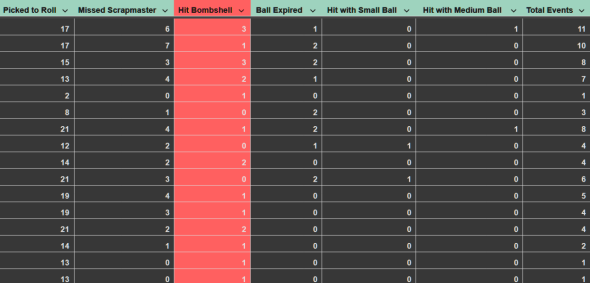There’s something different about losing a tank, especially during progression.
DPS come and go. Healers rotate in and out. But when a tank leaves, it shakes the foundation of a raid team. And recently, both of my teams lost that critical foundation.
The Silent Goodbye in Death Jesters
Let’s start with Death Jesters. One of our longtime tanks, someone who anchored our lineup from Season 1 of this expansion all the way through to now, decided to step down.
It wasn’t entirely unexpected. He had hinted a few weeks prior that the skill gap in the team was starting to outpace him. We had already started looking for possible replacements, just in case. Then we finally killed Mythic Soul Hunters, pushing us to 6/8 Mythic, and shortly after that… he was gone.
He posted a long goodbye message in Discord and left. While there was an initial conversation about a potential role swap, it seemed like that was rescinded. No sticking around to contribute in a different way. Just… out.
I get it. Tanking at this level is pressure. Every mistake is magnified. Every movement matters. But it still sucked to see him peace out like that, especially after how far we’d come together.
The Overnight Exit in Last Call
Meanwhile, over in Last Call, things were just as messy, but for different reasons.
One of our tanks was frustrated. Frustrated with our DPS, frustrated with the wipe rate, frustrated with what he saw as underperformance across the board. That frustration boiled over in our post-raid discussion.
I wasn’t there for it. But from what I heard, another raid leader got into it with him and dropped something to the effect of, “If you don’t like it, you’re free to leave.”
That is not how I would’ve handled it. Not at all. I was in the middle of making something to eat because I don’t eat during raid.
I would’ve tried to de-escalate. Maybe said something like, “If you’re this upset, let’s take a week and transition you out properly. I’ll help you find a team that’s a better fit.” Instead, by the next morning, he was gone. No message. Just silence.
He had sent me logs from Loom’ithar trying to justify his performance, like being 5th overall on DPS, despite being a tank. But it didn’t mean much when our raid wasn’t alive entering that phase. Ranking doesn’t matter when over half your team is dead.
And yeah, I didn’t Vantus the boss that week. Maybe that would’ve helped us kill it earlier. Maybe not. But we did kill it the next week. And now we’re working on Fractillus.
In any case, losing him left a big hole, and the timing was awful.
Why Tank Losses Cut Deeper
Tanks aren’t just bodies. They’re the backbone.
There are only two of them in a raid. They work closely together, and that chemistry takes time to build. Good tanks anticipate each other’s movements. They coordinate cooldowns. They position for the raid. They set the tone of how the pull is going to go.
When you lose a tank, you’re not just filling a role. You’re rebuilding synergy.
And it’s not like replacing a DPS where you can post a recruiting message and get 10 responses. Quality tanks at the Cutting Edge level are rare. And they know it.
What To Do When a Tank Leaves
It sucks. But it’s not the end of the world. Here’s how I’m handling it now, and what I’d recommend:
- Always be scouting. Even when your roster is full, keep feelers out. You never know when you’ll need someone.
- Have early conversations. If someone seems off or expresses doubts, talk to them. Don’t let it fester.
- De-escalate instead of confront. Tensions happen. But leadership means diffusing, not igniting.
- Offer transitions, not ultimatums. “Let’s find a better fit” works better than “Then leave.”
- Cross-train players. Having a flex DPS who can tank in emergencies is worth its weight in gold.
Looking Ahead
In Death Jesters, we managed to have a replacement lined up. A tank from our Shadowlands era was ready to step in.
In Last Call, we’re temporarily playing with a tank from our Liberation of Undermine run. He’s stepping in for the next few weeks, but he’ll be out of the country after that. I did have a few promising tank applications, and we’ve selected one. The guy raids on a weekday team that’s roughly on the same level of progression as we are, so he’ll have twice the amount of reps.
Progression slows without a stable tank lineup, but we’ve been able to find some improvements in that tank spot right now.
Closing Thoughts
People come and go in this game. That’s just the nature of it. But tanks?
Tanks are different.
They’re the heartbeat of your raid. And when one walks away (whether it’s due to burnout, frustration, or just needing a change) you feel it.
If you’re a raid leader reading this, my advice is simple: build a deep bench, check in often, and never assume silence means everything’s fine.
Got to be ready if a key personnel changes their mind or life comes crashing down and affects availability.

